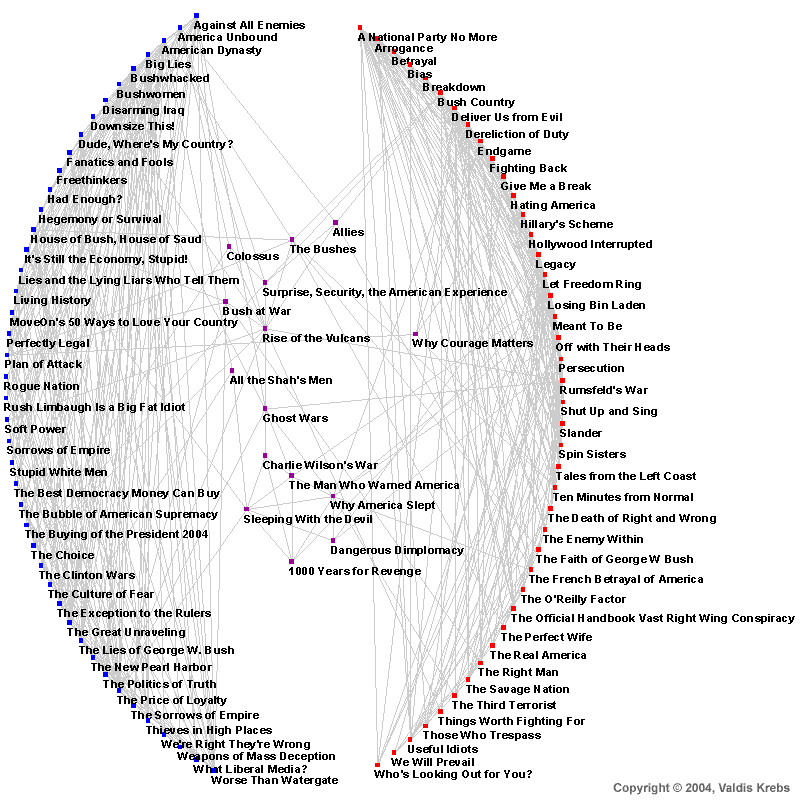|
|
|
Divided We Stand
This is the third "social network" map of political books based on purchase patterns from major web book retailers. Two books are linked in the social network if they were purchased by the same person -- "Customers who bought this book also bought". This time I used the top 100 political books on Amazon as a guide. The data was gathered in late April 2004, after the release of many greatly anticipated political books. InFlow software was used to map and measure the "social network of books."
The books are organized, and colored red, blue or purple, based on book buying data. The links determine the grouping and coloring of the nodes. Many thought that Woodward's latest book, Plan of Attack would be read equally by pro and anti-Bush readers. The 'also bought' data does not support that theory. Woodward's book is being bought mostly by those reading left leaning books.
The big difference between this network map and the previous two are the number of books in the middle. The release of two popular middle books, colored purple, expose a further network of middle books. Ghost Wars reveals one group of middle books, while The Rise of the Vulcans reveals a second group. Yet, the increase in boundary-spanning books does not indicate a shift in the political landscape. The three network maps are not that different within common statistical limits.
The division between left and right remains strong -- polarization and the political food fight continues. Social network metrics, as well as the visuals, show two dense clusters with high preference for homogeneous choices. Echo chambers, on the right and left, remain amongst book readers in America.
Research of the political blogosphere found some polarization between the red and blue blogs. Another study found more polarization before the 2004 election -- "Divided They Blog" [PDF].
See previous book networks from early 2003 and early 2004.
Interested in understanding more? See my original 1999 white paper on book networks.
Here are a few newspaper articles discussing the book networks: New York Times, Houston Chronicle, San Diego Union Tribune, and USA Today.
Software and Training in social network analysis are available from the author.
Copyright © 2004, Valdis Krebs
